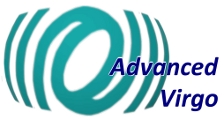Recently two members of Virgo Collaboration, Prof. Dr. Andrzej Krolak and PD. Dr. Michal Bejger, have won a DAAD Fellowships to work as Visiting Scientist at SCC in joint R&D project with HPC experts of SimLab EA Particles lead by Dr. Gevorg Poghosyan. The aim is to develop a new hybrid parallel version of the simulation and data analysis code for performing gravitational wave search on supercomputing systems.
Gravitational waves are the last prediction of general relativity theory of Einstein still awaiting a direct experimental verification. Observations of gravitational waves will open a new field - gravitational wave astronomy, providing unique information concerning exotic objects like binary systems of neutron stars and black holes, supernovae explosions, and the earliest stages of the evolution of our Universe. First science data from the global network of advanced gravitational wave detectors - LIGO, GE0600 and Virgo long arm interferometers, are expected soon and will be collected for several years.
Searching for sources in noisy data is algorithmically challenging, since one has to simultaneously predict and check for different possible types of signals, which is computationally formidable, due to the large parameter space over which the searches must be carried out.
Dr. Gevorg Poghosyan


